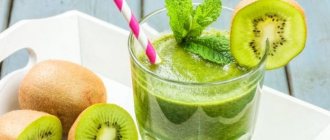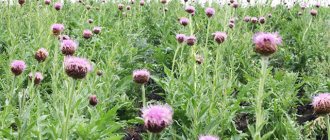Article prepared by:
Vasily Babkinsky
Doctor of the highest category
Prunes are actively used as a laxative. This effect of the product has been known for a long time. It is safe and almost incapable of causing side effects. Dried plums contain dietary fiber, which helps normalize the functioning of the intestinal tract. With digestive disorders, a person often experiences prolonged constipation, and it is prunes that help cope with it. The product can be used by people who are prone to allergic reactions or for some reason cannot take medications. Therefore, it is important to know the rules for brewing prunes for constipation. Its effectiveness depends on the correct preparation of the product.
Prunes are a popular and safe product for relieving constipation.
The importance of nutrition for constipation
Difficulties with bowel movements occur at different ages and regardless of a person’s social status. Constipation is a common problem that is most often caused by poor diet. So, the cause of bad stool can be:
- non-compliance with diet;
- a diet full of protein foods;
- lack of fiber;
- consumption of too fatty foods;
- passion for fast food;
- insufficient amount of fluid;
- binge eating.
With frequently recurring constipation, it is especially important to monitor your diet and adhere to food intake rules. First of all, you need to give up pickles, marinades and fried foods. Also, if you have intestinal dysfunction, you should not get carried away with fresh baked goods and exclude from your diet foods with a strengthening effect (pears, legumes, green bananas, fatty meats, etc.).
For normal functioning of the gastrointestinal tract, it is important to eat more food containing plant fiber. Therefore, your daily diet must include vegetables, fruits and grains. For constipation, you should give preference to the following products:
- pumpkin;
- beets and carrots;
- broccoli;
- bananas (ripe only);
- zucchini and eggplant;
- kiwi;
- raspberries, etc.
Dried fruits have a special effect on the intestines; for example, prunes help with constipation better than many laxatives and are an excellent way to prevent it. If you use it together with dried apricots and figs, you can increase its effectiveness. The main thing is to remember that liquid is important for plant fibers, so you need to monitor your drinking regime in the same way as your food intake.
Recipes, menus and diet products
Contraindications
Prunes almost never cause side effects, so they are allowed from the first days of life. However, there are exceptions to the rules.
So, prunes are not recommended for use in the following cases:
- There are cases when fruits cause allergic reactions. Therefore, you need to start treatment with a minimum dose in order to identify all side symptoms in time.
- During breastfeeding, you should limit your consumption of prunes, which have a strong laxative effect. Together with mother's milk, substances can enter the baby's body and cause diarrhea. This method is only suitable for constipation. For prevention, no more than three fruits are allowed per day.
- Prunes contain a large amount of sugar, so they are contraindicated for diabetes.
- Hypertension is also a contraindication, because prunes can increase blood pressure.
General Benefits of Prunes
Prunes are dried black plum fruits, which not only restore intestinal function, but also have a positive effect on the functioning of the entire gastrointestinal tract and the body as a whole. This dried fruit contains a large number of microelements and beneficial substances that give the following effect:
- improve food absorption;
- strengthen the walls of blood vessels;
- normalize the functioning of the cardiovascular system;
- restore performance;
- tone;
- improve the condition of the skin;
- normalize the function of the stomach and pancreas.
Among other things, prunes are rich in antioxidants that remove harmful free radicals from the body. Therefore, it is recommended for use by people living in environmentally polluted cities and those whose field of activity is related to industry.
Prunes are also an excellent means of preventing urolithiasis and have a beneficial effect on the nervous system, relieving anxiety and increasing stress resistance.
As for problems with bowel movement, regular consumption of prunes helps solve them, without the intervention of other, undesirable methods of treating fecal stagnation. It is especially important to include prunes in your diet during pregnancy. Pregnant women should not take most laxatives for
Recipes, menus and diet products
We recommend reading the article on how to deal with constipation during pregnancy?
Beneficial features
Prunes or dried plums are a very high-calorie product; one hundred grams of pure prunes contain about 260–265 calories. Dried plums also contain small amounts of protein.
The main components that make up prunes:
- organic acids;
- cellulose;
- water;
- vitamins (A, PE, B1, B2, C, E);
- niacin;
- microelements (potassium, magnesium, calcium, iron);
- saturated fatty acids;
- phenolic complexes;
- starch;
- pectin.
Prunes for constipation: how they affect the intestines
How do prunes help with constipation? The recipe is quite simple: by eating several fruits of dried black plums daily, you can cleanse the body of waste and toxins, which often cause intestinal dysfunction. In addition, prunes have a laxative effect, which is associated with the presence of plant fibers in its composition.
Plant fibers are the so-called cellulose, which is characterized by the ability to adsorb water. Once in the intestines, it absorbs liquid and, turning into a gel-like substance, envelops the accumulated feces. Fiber has the ability to soften feces, which ensures their free and easy exit. Therefore, it is recommended to eat dried fruits if you have hemorrhoids and anal fissures.
In addition, plant fibers, including prunes, are a kind of bulk laxatives of natural origin. By absorbing water, they increase the volume of intestinal contents. This process has an irritating effect on the smooth muscles of the walls and activates the contraction of peristalsis, which causes the act of defecation.
No less useful is a decoction of prunes for constipation . When prepared correctly, you can improve the functioning of the entire gastrointestinal tract and restore the functioning of the intestines themselves. Decoctions and tinctures of dried fruits can improve the microflora of the gastrointestinal tract and make the process of bowel movements regular.
How to use?
Dried fruits are used as a component of the daily diet or homemade medicines are prepared on their basis to regulate stool. Let's look at the most popular methods of application one by one.
Recipe 1
It implies the use of dried fruits in the form in which they are sold - that is, without special processing or combination with other components. First, you should choose good plums: pay attention to the appearance (uniform color, absence of foulbrood), smell (pleasant, sometimes slightly pungent). The taste of a quality product is rich and quite sweet.
Rinse purchased dried fruits under the tap; If necessary, straighten the folds with your fingers and rinse with hot water. This is enough to prepare for consumption: you can eat prunes throughout the day (up to 10 pieces) instead of food for a snack, after main courses as a dessert and at night to improve intestinal function in the morning.
Recipe 2
Select good specimens of dried plums and prepare them as described in the previous section: rinse thoroughly and rinse with hot water. Then remove the seeds, if the product is not freed from them in advance, and throw them away - they will not be needed. Dry the remaining pulp by spreading it on a wooden or plastic board to remove excess liquid (this will take about an hour).
Take kefir (choose the fat content according to your own wishes and taste preferences, but 2.5% is best), pour it over dried fruits (5-7 pieces are enough for a day) and leave for 3 hours in a cool place.
If you have constipation, you can eat prunes during the day before lunch or dinner, or an hour and a half after.
Recipe 3
You will need to take:
- boiling water (so that the total amount of hot water is 0.2 liters);
- dried plum – 15 berries;
- heat-resistant dishes with a lid;
- a large towel or cloth napkin.
Wash dried fruits, boil water. Pour it over the berries in the evening, cover with a lid and wrap in a towel. Leave in a place where there is no direct contact with the sun's rays. In the morning, strain and drink prune infusion for constipation throughout the day - you need to consume it three times in the same amount. It is better to do this after breakfast, lunch and dinner - an hour or an hour and a half later. If necessary, it is worth preparing fresh product rather than leaving it for future use.
Recipe 4
This is a decoction of prunes for constipation; you will need the following ingredients:
- Dried plum – 0.2 kg.
- White crumbly sugar - 0.25 cups.
- Water – 2 l.
Select and wash the plums, pour boiling water over them. In a saucepan over low heat, first dissolve the required amount of sugar. After this, wait until it boils and add dried fruits. Cook for up to half an hour and monitor the temperature of the product - it should remain stable. Do not try to speed up the process by turning up the heat on the stove. When the specified time is over, turn off the gas and let the medicine cool. Pass through gauze and let the patient take a tablespoon of prunes in the form of a decoction before each meal. Store in the refrigerator for no longer than 48 hours.
Recipe 5
It has been familiar to many of us since kindergarten - although not everyone knows how to properly prepare prune compote, everyone has heard about its benefits. You will need:
- dried fruits – 0.2 kg;
- sugar - half a glass of 200 g;
- water – 0.5 l.
Rinse the berries under the tap. After pouring sugar into the pan, fill it with water (it should already be hot). Mix well until completely dissolved. Add dried fruits and leave for 20 minutes, stirring gently. How to take prunes for constipation? The boiled compote is usually enough for 4 servings. They should be drunk warm during the day during meals. If desired, you can reduce the amount of sugar.
When prunes won't help
Despite all the benefits of this dried fruit, it still does not always help cope with fecal stagnation. So, if constipation is chronic and occurs with a complete absence of bowel movements, then prunes will not bring the desired result. What is this connected with?
The effectiveness of prunes primarily depends on the type of constipation. Gastroenterologists recommend including it in the diet for problems with bowel movements associated with poor diet and lack of physical activity. If the cause of frequent constipation is more serious, then the treatment of the pathology should be comprehensive, including not only diet, but also drug therapy.
Recipes, menus and diet products
Prunes will not help if intestinal dysfunction is caused by the following reasons:
- physical inactivity;
- long-term use of medications;
- toxic poisoning;
- endocrine pathologies;
- neoplasms in the intestines;
- intestinal obstruction;
- psychoemotional disorders;
- intestinal atony;
- dysbacteriosis, etc.
Also, eating prunes for constipation will be ineffective if a fecal impaction forms. If constipation is accompanied by a complete absence of stool, pain in the lower abdomen and deterioration in general well-being, then the treatment of the disease should be approached with the utmost seriousness. In order for prunes to bring the desired effect when consumed, it is important to monitor the drinking regime. A large amount of fiber in the diet can, on the contrary, cause bad stools if a person does not drink the required amount of water per day. This is why prunes do not always help with constipation. Reviews from people suffering from frequent problems with bowel movements indicate that when introducing dry plums into the diet, you need to drink up to 2 liters of ordinary water.
We recommend reading the article about complex therapy for constipation.
Can children eat prunes and at what age?
Many mothers have encountered the problem of constipation in children. This often happens when switching to artificial feeding or after introducing complementary foods. Prunes also come in handy here.
At what age can the product be given? The sources have different information - somewhere they write that it is possible from 3 months, and somewhere it is prohibited until a year.
According to WHO, if a child is fully breastfed, complementary feeding is not recommended until 6 months.
However, the absence of stool for 5-7 days is not considered constipation. Of course, provided the child is in normal health.
Old-school pediatricians allow complementary feeding with fruits from 3 months. Modern pediatric doctors recommend waiting six months, allowing you to give a little of everything. At the same time, the mother must ensure that the baby does not develop an allergy to the new product.
There are a number of conditions in which prunes are contraindicated for children. These are low levels of hemoglobin in the blood, chronic diseases and a tendency to allergies.
In other cases, dried fruit can be given in limited quantities.
How to prepare a remedy for constipation for a child:
- Puree. Pour boiling water over the prunes for a few minutes. Remove the skin and grind. Add a little water and simmer in a water bath. Cool at room temperature and give to baby in small portions. It’s better to start with a small spoon a day and watch for a reaction.
- Compote. Pour 100 g of dried plums with a glass of water and bring to a boil. Cool and give to child before meals. The drink can be prepared from a mixture of prunes, raisins and dried apricots.
Attention! Children under one year of age do not need to add sweeteners. This is especially true for honey, which is a strong allergen.
Who shouldn't eat prunes?
Dried homemade plums are very useful for both adults and children. Prune compote is especially useful for infants against constipation, which manifests itself against the background of the introduction of new complementary foods. However, there is a category of people for whom treatment of stool with this delicacy is contraindicated.
It is not recommended to eat prunes in the following cases:
- a history of diabetes mellitus;
- personal intolerance to fiber;
- allergic reaction to plums;
- tendency to corpulence;
- for chronic cholecystitis;
- stones in the kidneys.
In addition, prunes should be avoided during lactation, as their excessive consumption can cause gastrointestinal problems in the newborn. This product is undesirable for hypotensive patients and people who have chronic gastric and duodenal ulcers.
How to check and choose quality prunes?
Very often you come across prunes on sale that have been treated with chemicals for long-term storage. In order not to make a mistake when purchasing, you need to pay attention to the following requirements:
- dried fruits must be undamaged, black in color, without signs of mold or a specific odor;
- shell without shine;
- plums are soft and elastic to the touch, leaving no marks on your hands;
- the taste is sweet with a slight bitterness.
Recipes
Using prunes, you can prepare the following dishes for constipation:
- Steamed prunes, dried apricots and feijoa are crushed and seasoned with olive oil.
- Before breakfast, it is recommended to eat chopped prunes and figs with coriander.
- Chopped prunes are mixed with grated boiled beets. Season with vegetable oil and sprinkle with chopped nuts.
- Apples, boiled beets, steamed prunes are crushed, mixed and seasoned with fresh sour cream. You can sprinkle the salad with chopped hazelnuts.
- Cook the beets and carrots and grate them. Prunes and dried apricots are steamed and crushed. All ingredients are laid out in layers and coated with sour cream. The last layer should be a mixture of crushed eggs, grated cheese, sour cream and herbs.
- In the morning, it is useful to eat oatmeal or buckwheat porridge, seasoned with chopped prunes and natural honey.











